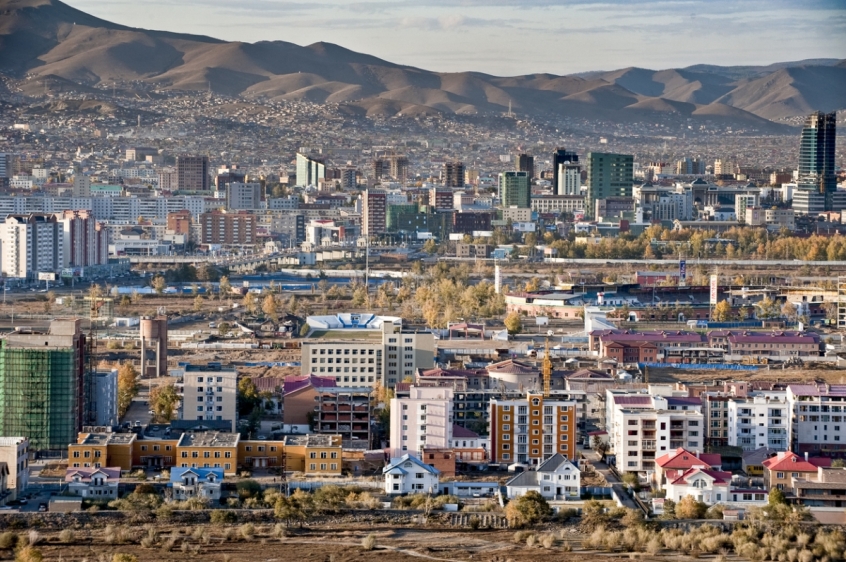
Pope Francis will become the first pope to travel to Mongolia when he arrives Friday in the majority Buddhist country for a four-day visit.
While the pontiff hopes to encourage Mongolia's small Catholic community during the trip, his visit might also have a powerful echo in the neighboring countries of Russia and China.
"I will set out on a journey for a few days in the heart of Asia, in Mongolia," the pope said during his Sunday Angelus prayer in St. Peter's Square. "It is a much-desired visit, which will be an opportunity to embrace a church that is small in number, but vibrant in faith and great in charity."
Francis is expected to take the opportunity to express closeness to the "small flock" of the Catholic community in the country.
"I am happy to travel to be with you as a brother to all," he added, addressing the Mongolian people, during his Sunday prayer.
During his trip, Pope Francis is also expected to promote care for the environment, as Mongolia has greatly suffered the consequences of heavy mining industries. The pope's trip to Mongolia might also become an opportunity for him to reach out to Russian and Chinese leaders as well as to the Catholic faithful in those countries.
Even though Christianity has been present in Mongolia since the seventh century, there are only 1,500 Catholics in the country, according to church estimates. Historical events — especially the rise of communism in Mongolia — led to the diminishment and suppression of Christians there. Catholics, along with other religious representatives, were invited to return to the country in 1992, once democracy was restored in the state.
The pope will depart on Thursday from Rome and arrive in the Mongolian capital of Ulaanbaatar on Friday morning, where he will be welcomed by a delegation of local representatives. The 86-year-old pontiff has no official events scheduled for his first day in the country.
According to clergy on the ground, the local Catholic community was stunned to learn that the pope would be visiting the country. Diplomatic relations between Mongolia and the Holy See were established over 30 years ago, but Pope Francis greatly encouraged the local Catholic community when he made his envoy to Mongolia, the 49-year-old missionary priest Giorgio Marengo, a cardinal.
"Pope Francis is visiting Mongolia because he is a good shepherd who thinks of the lost sheep and of the weakest," said the Rev. Jaroslav Vracovský, a parish priest in Shuvuu, Mongolia, speaking to a small group of journalists online.
"His visit will be an encouragement for all of us," he added.
On Saturday, Francis will meet with the president, prime minister and the head of Mongolia's Parliament, where he is expected to make a public speech to diplomats and government officials. In the afternoon he will meet with church representatives at the Cathedral of Sts. Peter and Paul, which was built in 1996 and resembles the ger tents — also known as yurts — typical of the nomadic Mongolian tribes.
The meeting will provide an opportunity for the pope to promote his vision of the Catholic Church, based on listening, inclusion and fraternity, to the growing Catholic community in the country.
The majority of Mongols are Buddhists of the Tibetan tradition; there also are a great number of people who follow animistic beliefs and shamanism.
Pope Francis praised the "noble, wise people" of Mongolia in his Sunday message and said he looks forward to getting to know their religious tradition, "especially in the context of an interreligious event."
The pope will meet with delegates from Mongol shamanic traditions, Buddhism, Mongol Hebraism, Christian evangelicalism and Adventism, Hinduism and many more for an ecumenical event at the Hun Theatre on Sunday.
That same afternoon, he is expected to say Mass to over 2,500 faithful who will be also coming from Russia, China, Hong Kong and Macao, Thailand, Korea, Kazakhstan and Azerbaijan.
While the Vatican has not confirmed such an event, the Mass could be a unique opportunity for Catholics in China and Russia to see the pope, since no pontiff has ever visited either country.
During the flight to Mongolia, the pope's plane will fly over Chinese airspace and Francis will issue a telegram to Chinese President Xi Jinping. Popes traditionally issue telegrams to the political leaders of the countries they fly over or travel through.
The Vatican has been working on its diplomatic relationship with China for decades and recently renewed a controversial and secretive deal for the appointment of bishops with Beijing.
When Pope Francis visited Kazakhstan in September 2022, Vatican observers suggested that the pontiff might meet with the Chinese president, but the encounter never happened. Francis' ecumenical outreach to Tibetan Buddhists in Mongolia might not help improve the already complex relations.
Francis has also been a vocal proponent for peace as war rages in Ukraine and elsewhere in the world. Rumors that the pope might meet with the Orthodox Patriarch of Moscow Kirill while returning from his visit to Mongolia have not been confirmed by the Vatican. Francis and Kirill made history when they met in the airport of Havana and co-signed a document against the persecution of Christians in 2016.
The pope's last day in Mongolia, on Monday, will include a visit and blessing of a charitable organization that cares for women and children who are victims of domestic violence but is also open to immigrants and the homeless.
"It's wonderful that the trip will end in a place of love for others and created by the local church," said Matteo Bruni during a meeting with journalists at the Vatican on Tuesday.













